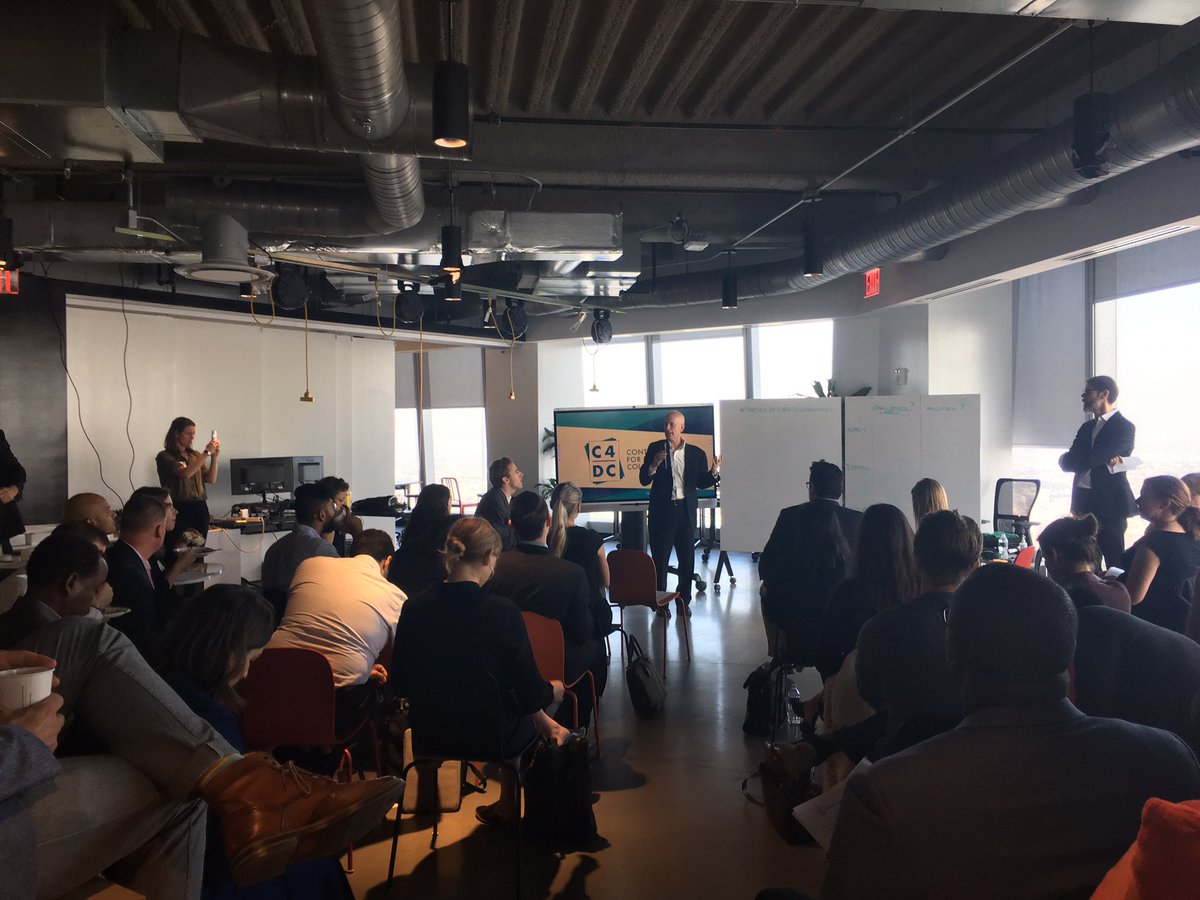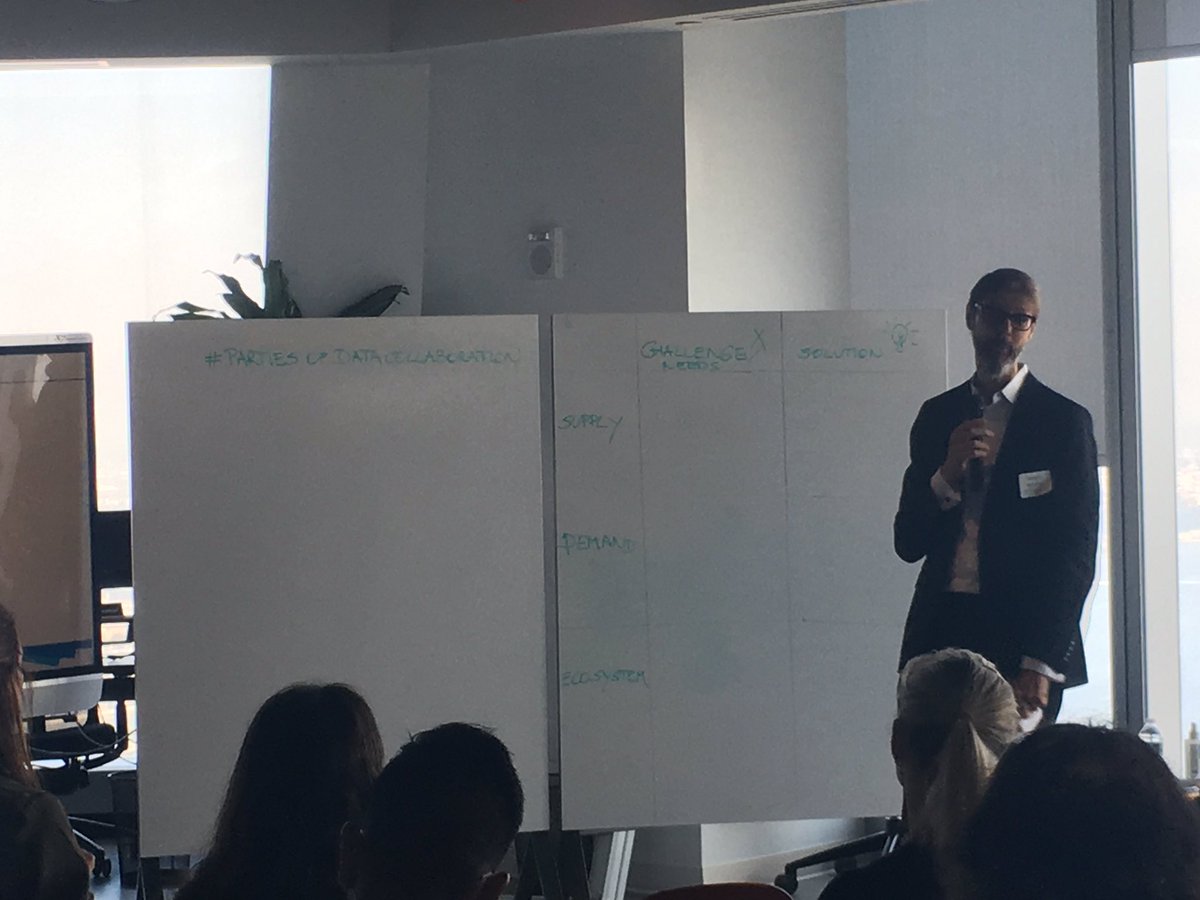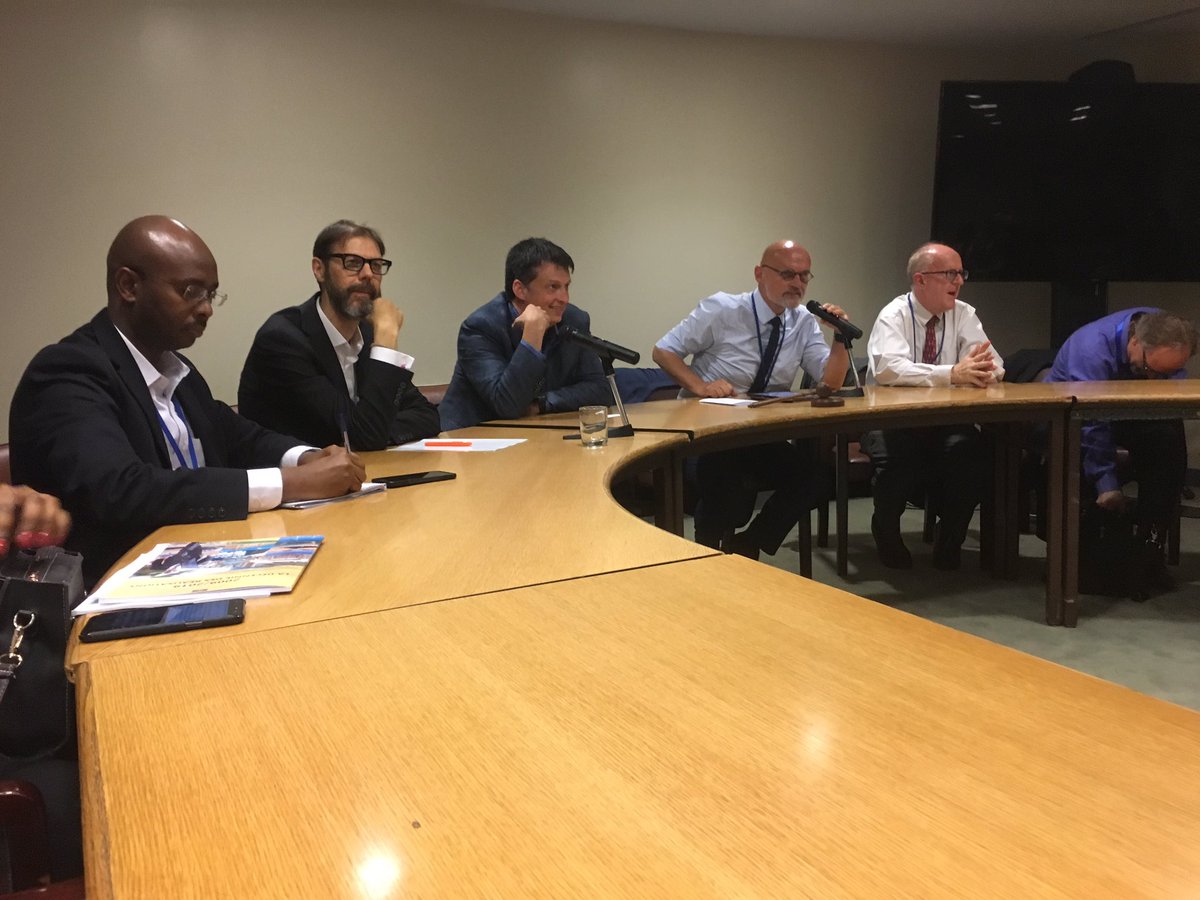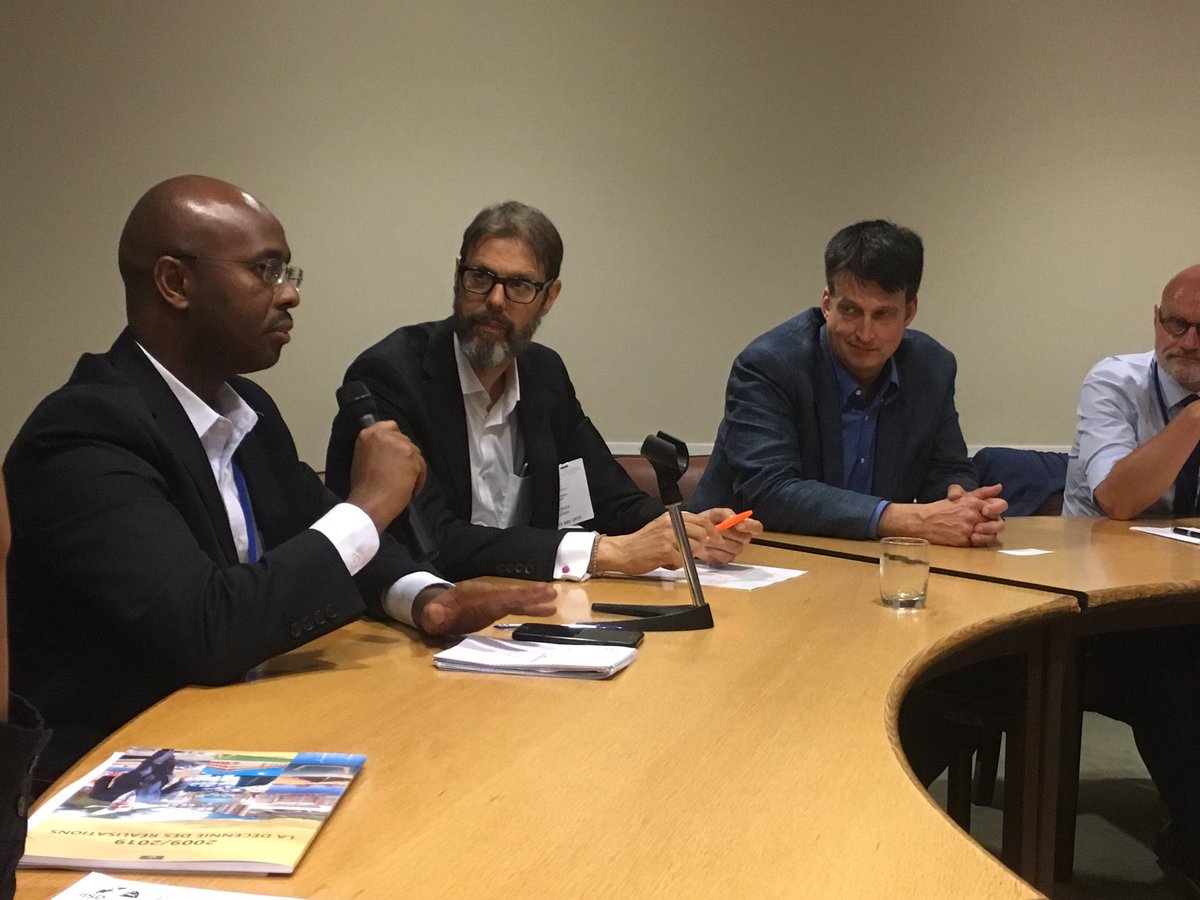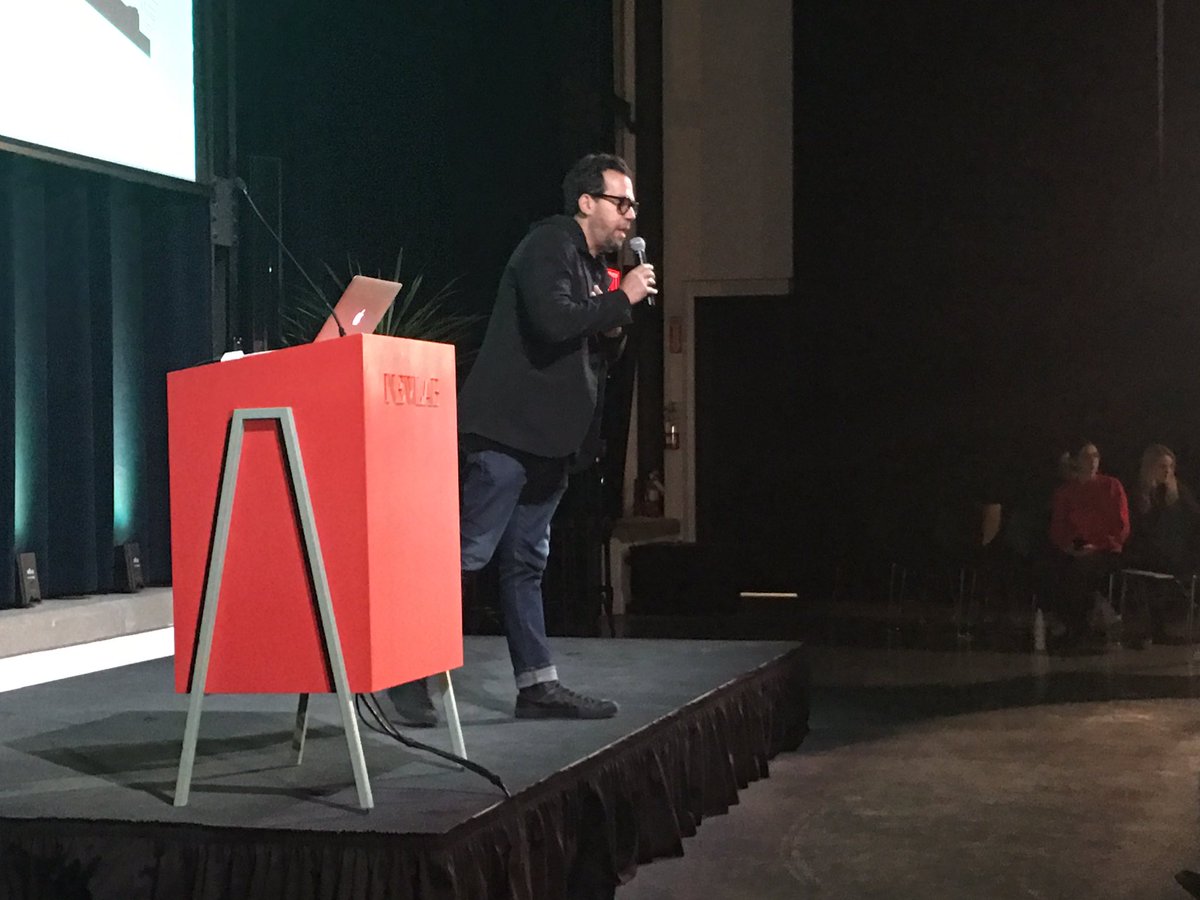
In just a few minutes, our co-founder @sverhulst will be speaking at the #UNDataForum on the panel: “Data for Good: towards a sustainable ecosystem, beyond philanthropy” with several global experts. You can follow that conversation on this thread.
Panelists will identify solutions toward a sustainable Data for Good ecosystem such that in the future, data can actually save lives on the ground. Participants will include the private sector, public bodies, policymakers, statistics offices and third-party facilitators.
@vrbenjamins and @sverhulst introduce the panel: In the next 75 minutes, panelists will explore how we can make data sharing more systematic, sustainable, and responsible. 

In order to make Data for Good systematic, we need to think how we express demand, organize ourselves from the supply-side, and how we match demand and supply. @sverhulst asks: "How would you go about improving the signal for Data for Good?"
@DSalgFdezA: "A public private engagement in common statistical process will systematize the production of data for good. In this light, Data Stewards will play a critical role."
Dominik Rozkrut of Statistics Poland notes that statistical offices have a strong tradition of defining what a public good is. Their systems have been created in a way that is very inclusive; there is a potential to release data from these statistical offices responsibly.
Next, @sverhulst asks "How do we engage the private sector in the supply side of data?"
@PrivacyDesign says strong data governance processes within private sector organizations are critical, to maintain accountability, transparency, privacy, etc.
@PrivacyDesign says strong data governance processes within private sector organizations are critical, to maintain accountability, transparency, privacy, etc.
@privacydesign: "We do not have standard cross-organizational legal and review processes for data. Without this, it is hard for organizations to react to problems with speed; as a ecosystem we need to act to build this together."
@pdealarcon at Telefonica suggests ways to streamline this process:
1. This must be a top-down initiative
2. We must commonly define "Data for Good"
3. We must understand how internal initiatives relate to the demand side of data
1. This must be a top-down initiative
2. We must commonly define "Data for Good"
3. We must understand how internal initiatives relate to the demand side of data
4. There must be a dedicated team to coordinate these efforts - a “Chief Data Steward” is one way to do this
5. We must also lower internal barriers whenever Data for Good initiatives come to the table, and define the limits for these initiatives.
5. We must also lower internal barriers whenever Data for Good initiatives come to the table, and define the limits for these initiatives.
@rachelsibande speaks from her experience developing Data For Good initiatives on the African continent:
"We must design Data for Good initiatives that are able replicate across sectors and geographies."
"It is important to build and enhance local technical capacities."
"We must design Data for Good initiatives that are able replicate across sectors and geographies."
"It is important to build and enhance local technical capacities."
@MojcaCargo discusses the Global System for Mobile Communications' (GSMA) 6-step process to make data sharing systematic:
1. Country-wide landscaping
2. Knowledge building
3. Specification
4. Implementation
5. Adoption
6. Replication
1. Country-wide landscaping
2. Knowledge building
3. Specification
4. Implementation
5. Adoption
6. Replication
@pdealarcon and @PrivacyDesign speak about how to make Data for Good financially sustainable:
While there is no clear answer to this, Pedro notes that a practical approach might be business to government contracts.
While there is no clear answer to this, Pedro notes that a practical approach might be business to government contracts.
JoAnn shares Mastercard's strategy to engage Data for Good initiatives: Philanthropic endeavors, public-private partnerships, direct government projects, and partnerships with academic institutions to employ Data for Good Fellows.
@PrivacyDesign: "We rotate our employees between social impact and commercial projects [...] there is often a natural flow between the two."
Dominik Rozkrut discusses the need to design these processes intentionally from scratch, and also provide dedicated financial tools to kick start the process.
Thoughts from @rachelsibande on financial sustainability:
Fund local institutional capacities to become the stewards of Data for Good initiatives; Take into consideration the ability of those initiatives to be able to replicate across diverse sectors and geographies
Fund local institutional capacities to become the stewards of Data for Good initiatives; Take into consideration the ability of those initiatives to be able to replicate across diverse sectors and geographies
@MojcaCargo: It is especially important to be able to understand and showcase the value of Data for Good for initiatives, and demonstrate this externally.
Next, @vrbenjamins asks: "What principles do we need to guide these initiatives?"
@PrivacyDesign: "If you don't have a north star, employees won't know where to go. We recognize as our data footprint continues to grow, data responsibility is our foremost focus."
@PrivacyDesign: "If you don't have a north star, employees won't know where to go. We recognize as our data footprint continues to grow, data responsibility is our foremost focus."
JoAnn also discusses the importance of maintaining integrity in our practices: "How are we thinking through data quality, data lineage, machine learning, etc.? Are we really understanding how data is going to be used? All principles must be written to address that."
As the panel wraps up, Stefaan takes a question from the session participants regarding the political dimension of public-private partnerships.
Dominik responds to this, saying we need more public conversation and broader engagement in these issues.
Dominik responds to this, saying we need more public conversation and broader engagement in these issues.
And that concludes the panel! Thanks to all those that joined us at "Data for Good" at the #UNDataForum today.
@Telefonica @flowminder @OECD @es_INE @StatPoland @GSMA @Mastercard
@Telefonica @flowminder @OECD @es_INE @StatPoland @GSMA @Mastercard
• • •
Missing some Tweet in this thread? You can try to
force a refresh





